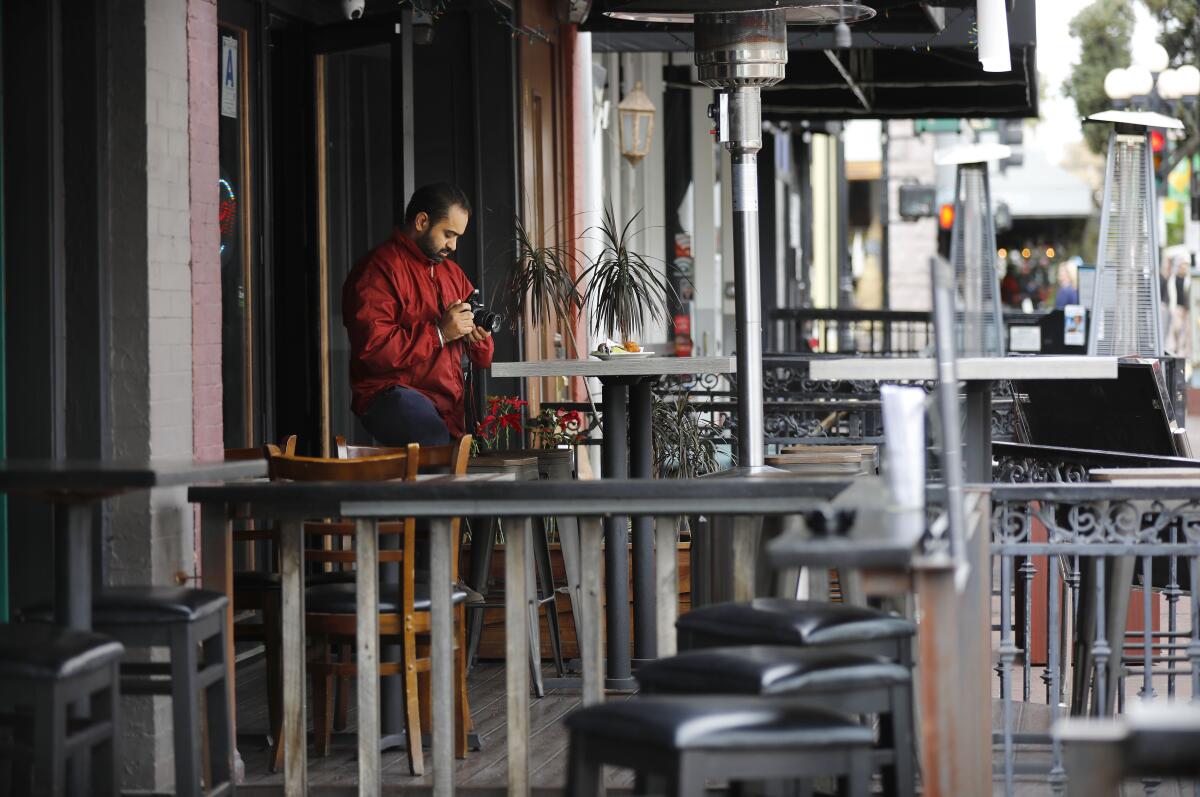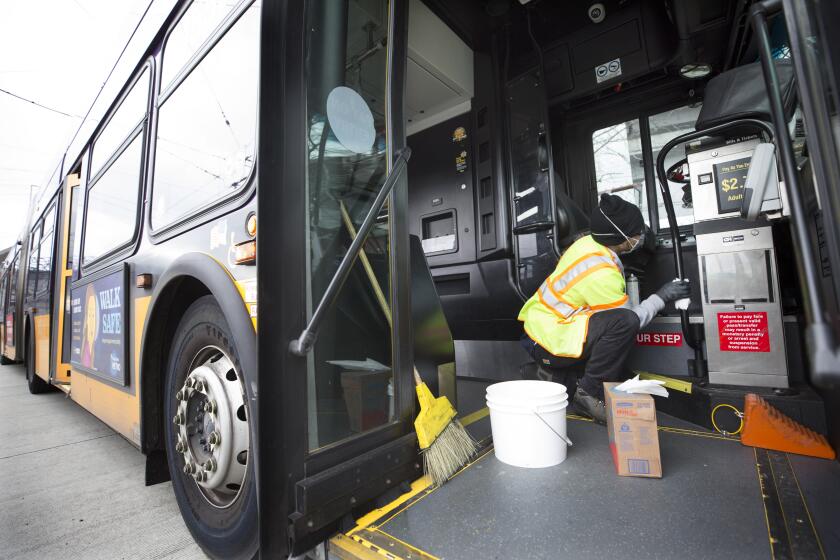Resources for restaurants and workers affected by the coronavirus crisis

- Share via
Restaurant operators and food service workers are reeling from the fallout of the coronavirus pandemic, which has forced the closure of dine-in service at thousands of restaurants, bars and other venues across the country.
We’ve put together a list of resources for businesses and workers blindsided by the loss of revenue and jobs. Because a public health crisis affects all facets of life, we’ve included information to help you stay safe and healthy during this uncertain time. We welcome suggestions for additions to this list.
The Restaurant Workers’ Community Foundation, a nonprofit advocacy group for restaurant operators and workers, has created a list of resources for restaurants and workers coping with the COVID-19 crisis. The frequently updated page includes information on relief funds, small business loans, news and more. Donate to the RWCF’s emergency relief fund here, which will help workers facing economic hardship or health problems as a result of COVID-19, and help provide zero-interest loans to businesses affected by the health crisis.
The One Fair Wage Campaign has started a relief fund for restaurant and gig workers affected by the crisis in states where it has active campaigns. To qualify for assistance, restaurant workers, delivery workers, drivers and other tipped service workers must sign up with One Fair Wage and participate in a confirmation interview to receive assistance. You can donate to the relief fund here.
The U.S. Small Business Administration announced March 12 that it will provide disaster assistance loans for small businesses impacted by COVID-19. Find more information about the loan application here.
The California Restaurant Assn. Foundation, a nonprofit that supports the state’s restaurant workforce through educational grants, has an emergency loan program called Restaurant Cares to help restaurant workers cover basic living expenses.
If your employer has reduced your hours or shut down operations due to COVID-19, you may be eligible to receive unemployment benefits that range from $40 to $450 per week. You can file a claim with California’s Employment Development Department.
How the coronavirus outbreak might affect you or your family depends heavily on where you work and live and the generosity of your employer’s benefits.
Apply for public assistance programs such as CalFresh, Medi-Cal or CalWorks online on the California benefits website. (You have the right to ask for help in your own language. There is no cost for this help.)
The economic blow of the coronavirus pandemic hits a community already grappling with high rates of depression, anxiety and substance use.
For those suffering from mental illness, addiction or grief, crisis support is available. The National Suicide Prevention Lifeline (call 800-273-8255 or text “Hope” to 916-668-ICAN) offers free, confidential 24/7 help. The Crisis Text Line (text “Home” to 741741) lets you connect to a trained crisis counselor without having to talk on the phone. The National Alliance on Mental Illness (800-950-6264) has put together a helpful PDF guide with coronavirus-related questions and resources.
The national hotline of the Substance Abuse and Mental Health Services Administration, part of the U.S. Department of Health and Human Services, is a free, confidential, 24/7 treatment referral and information service (in English and Spanish) for individuals and families facing mental and/or substance use disorders. You can also find programs to help recover or stay sober at DrugRehab.com.
Restaurant After Hours, a charitable organization providing mental health resources for the hospitality industry, has a robust resources page with information on mental health help, restaurant-focused organizations and online communities.
The demands of social distancing can put vulnerable populations in danger. The Los Angeles County Department of Public Social Services has resources for survivors of domestic violence. Or talk directly to a counselor on your computer with the National Domestic Violence Hotline online chat feature.
More than half of California’s school districts have shut down, leaving many students without access to regular meals (about 80% of L.A. students qualify for a free or reduced-price lunch). Los Angeles Unified School District has a resource page for parents, teachers and other caregivers, including a map with the locations of 60 new Grab & Go Food centers where families can pick up meals for their children. Long Beach Unified School District will provide free breakfast and lunch to children ages 1 to 18 for the first week of the closure regardless of which school they attend.
Undocumented labor has been vital to the U.S. food service industry; the Pew Research Center estimates that in 2014, about 1.1 million, or 10% of, restaurant workers were unauthorized. Undocumented workers lack many safety net systems. The Los Angeles County Bar Assn.’s Immigration Legal Assistance Project provides legal aid and counseling for a nominal fee. Community Legal Aid SoCal has a hotline providing low-cost evaluation, advice and counsel for low-income residents of Southern California.
In July 2019, California extended health-care coverage to some undocumented young adults through its Medi-Cal program. Find out more at the Covered California website.
Physical, mental and developmental disabilities and other health conditions can make it difficult to read or fill out forms. The Americans With Disabilities Act hotline (844-586-5550) offers assistance with these and other challenges. The Los Angeles County Department of Public Social Services (866-613-3777) can also help. You do not need to provide proof of your condition.
More to Read
Eat your way across L.A.
Get our weekly Tasting Notes newsletter for reviews, news and more.
You may occasionally receive promotional content from the Los Angeles Times.











